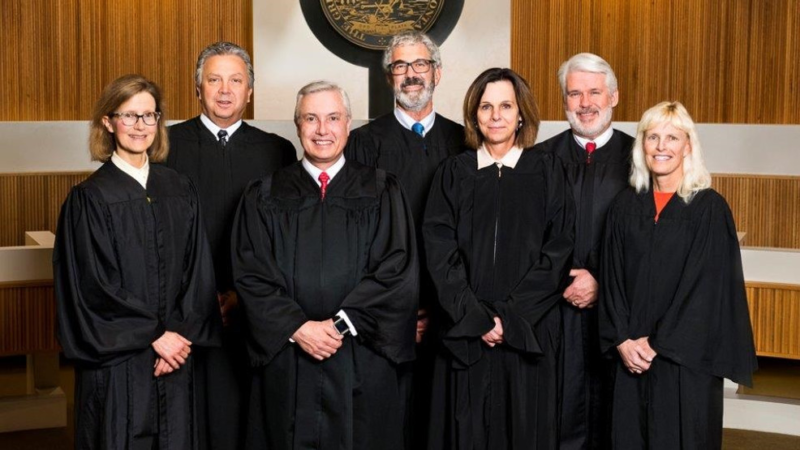“Equal justice under law” is such a foundational principle in our constitutional republic that the phrase is carved in stone above the entrance to the United States Supreme Court building in Washington, D.C.
Unfortunately, here in Montana, it appears that justice is not applied equally. In fact, at the Montana Supreme Court, there are two tiers of justice. There, justice is applied differently depending on the politics of the people in the courtroom.
Two court cases, one cited as precedent in the other, illustrate this so vividly that two of Montana’s seven justices pointed it out to their five colleagues even as they instituted this two-tiered system.
The first case is American Tradition Partnership v. Bullock, decided in 2012. In that case, a conservative political group challenged campaign finance regulations that were obviously unconstitutional under the First Amendment per a prior U.S. Supreme Court decision. In ATP v. Bullock, the U.S Supreme Court flatly rejected former Attorney General Steve Bullock’s arguments in a decision that only took a single paragraph to explain. After winning decisively on a fundamental First Amendment issue, ATP asked the Montana Supreme Court to award them legal fees. The Montana Supreme Court declined, writing that awarding fees against Bullock wasn’t justified because it was a “garden variety” constitutional case.
The second case is Forward Montana v. State of Montana, decided earlier this year. In that case, liberal special interest groups won a case against the Legislature in district court that centered on legislative process rather than any particular policy. The district court declined to award the liberal attorneys (both of whom are former Bullock staffers) attorney fees, citing the same “garden variety” standard present in the 2012 WTP v. Bullock case.
But then, in a 5-2 decision, the Montana Supreme Court reversed the district court and ruled that the liberal attorneys are owed fees. Justice Jim Rice wrote the dissenting opinion, arguing that fees should not be awarded in the Forward Montana case since they were not awarded in ATP v. Bullock, especially since ATP involved issues of much greater public interest and constitutional importance. “Justice demands that all parties receive equal treatment,” Rice wrote. Justice Dirk Sandefur joined Rice in dissent.
Rather than listen to Justice Rice, Justices Mike McGrath, Laurie McKinnon, James Shea, Beth Baker and Ingrid Gustafson established two tiers of justice at the Montana Supreme Court:
If you’re a conservative challenging the government on a fundamental constitutional matter, the costs of doing so are your own to bear.
If you’re a liberal challenging the government, even on an issue with lesser constitutional significance, the Court will award you taxpayer money for your efforts.
Such naked partisanship and disregard for “equal justice under law” is not befitting of the highest court in the state of Montana.
By: Sen. Greg Hertz, R-Polson

